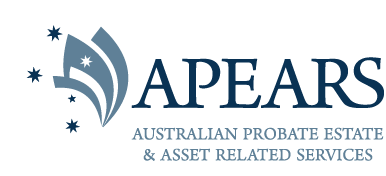A substantial number of off-market share transfers I attend to for New Zealand clients involve a transfer to the trustees of a family trust. Despite protestations over the years the share registries in Australia, acting under CHESS and ASX Listing Rules are unable to recognise the Trust itself as the registered owner of the shares. Simply this is because a Trust itself s not a legal entity.
Some clients have commented that this as been got around by using the Trust Name in the address field. However, after raising the issue at a recent meeting of the Share Registrars Association I was informed that this would be an anomaly created by a Broker or Non-Broker Participant who inadvertently used the address field which was not picked up by the computerised registry system.
In all cases the registration for a Trust must be in the names of the actual trustees. An account designation is able to be used to identify and separate the shares form the trustees own personal holdings if that exist. Such a holding registration may resemble:
Richie McCaw, Graham Henry & World Cup Winners Pty Limited
<Web Ellis Family A/C>
C/- Rugby NZ Limited
PO Box 9999
Auckland New Zealand
If trying to use the word trust anywhere, the transfer is likely to be rejected by the registry and incur more time and expense for the client.
There is no problem having companies as the trustees of the trusts, which I note is a common trend in New Zealand. However the signatories for the Company would need to identify themselves by also completing their name and position on any transfers they sign.
Success for the real beneficiaries of an estate
In a recent case I was asked to act for two sisters based in New Zealand and America in the estate of their sister who had died in Melbourne. Initially the deceased’s ex husband had intermeddled in the estate and had even attempted to forge a new Will after her death. It seems there was no love lost between the parties and the ex husband had always felt aggrieved at his former wife’s financial security. In any event the brother of the deceased was appointed to act as administrator of her Intestate Estate and had with the help of the ex husband been attending to the affairs. He seemed to be clueless as to the extent of the estate as he himself was in NZ and away from the day to day matters.
Upon becoming involved I put the parties on notice that any estate distribution had to be made equally to the three siblings as the heirs under the Victorian Administration laws. This proceeded smoothly except that in the meantime the aggrieved ex husband had convinced the Superannuation Fund who had a substantial life policy, that the policy should be paid to the brother and the ex husbands three children (who were not even, blood children of the deceased). Upon hearing of this we were forced to lodge a formal complaint to the Superannuation Complaints Tribunal.
In Australia, superannuation is part of a Commonwealth Law and not subject to Estate and Succession Laws of the various States. This is a major anomaly and is mainly due to the presumption that Super Funds are not available to creditors, unlike estate assets (something I believe could easily be changed in legislation). Super Funds can pay to the estate but initially attempt not to.
After reviewing our submissions the SCT advised the Super Fund to review their decision. They duly did this and made a payment notice for the Estate to receive the funds. The ex step children (or their father) then made their own complaint to the SCT. After another review the SCT advise the new complainants that they did not have the jurisdiction to hear the complaint as they were not dependents on the Deceased, nor related (as their father had officially divorced the deceased some years earlier). Finally, the estate of the deceased who died in May 2008 is now complete!

